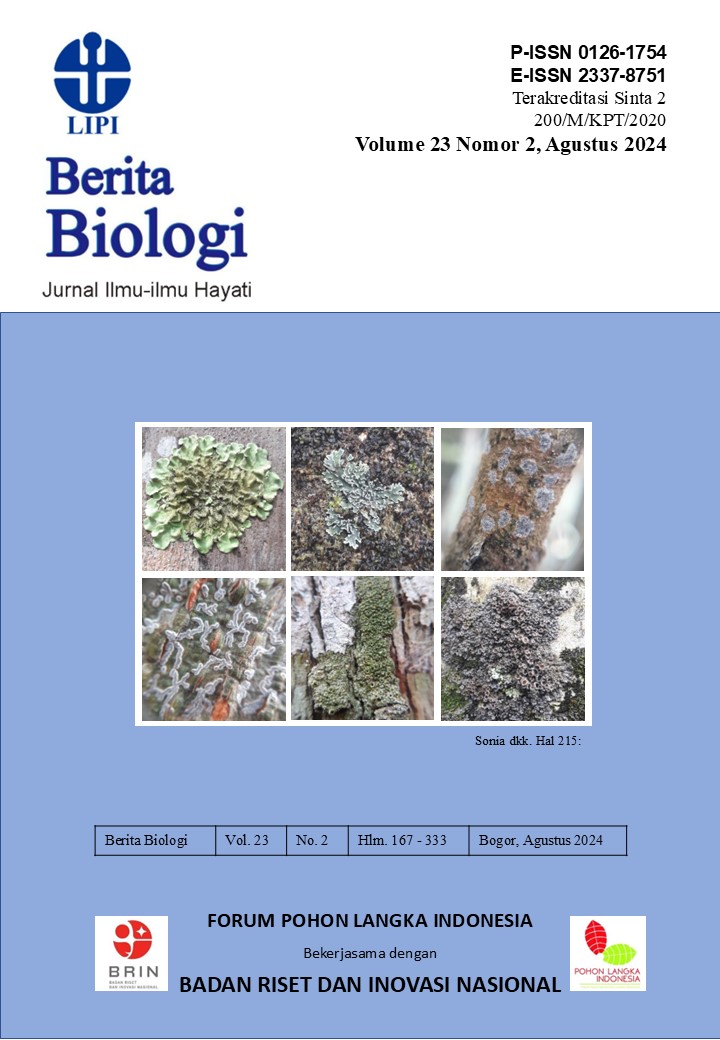ISOLATION AND IN VITRO BIOASSAYS OF ENDOPHYTIC FUNGI ASSOCIATED WITH LIDAH BUAYA (Aloe vera (L.) Burm.f.)
DOI:
https://doi.org/10.55981/beritabiologi.2024.3879Keywords:
endophytic fungi, Aloe vera, antibacterial, antioxidant, TLC-DB, MICAbstract
Endophytic fungi are fungi that live in plant tissues that do not cause disease symptoms, do not harm the host plant, and can produce secondary metabolites such as antibacterial, antifungal, and antiviral compounds. This study was conducted to isolate and evaluate the antibacterial and antioxidant activities of endophytic fungi from Aloe vera (L.) Burm.f. against Staphylococcus aureus and Escherichia coli bacteria. The antibacterial activity test was carried out qualitatively by thin layer chromatography-direct-bioautography (TLC-DB), and microdilution methods were used for the antibacterial assay against Staphylococcus aureus and Escherichia coli. Antioxidant activity was determined against DPPH using TLC-DB and the microdilution assay. Antibacterial results showed that the extracts LBB-2.4, LBB-2.2, LBAu-1.1 and LBAu-2.1 could inhibit the growth of S. aureus. Meanwhile, extracts of endophytic fungi with the isolate codes LBB-2.4, LBB-2.1, LBAp-3, LBAp-1, LBAu-1.1 and LBAu-2.1 could inhibit the growth of E.coli. The results of Minimum Inhibitory Concentration (MIC) showed that isolate LBB-2.1 had moderate antibacterial activity with a MIC value of 256 μg/mL against S.aureus. The extracts showed weak antioxidant activity against DPPH. It can be concluded that endophytic fungi extracts from Aloe vera have potential activity as antibacterial agents.



